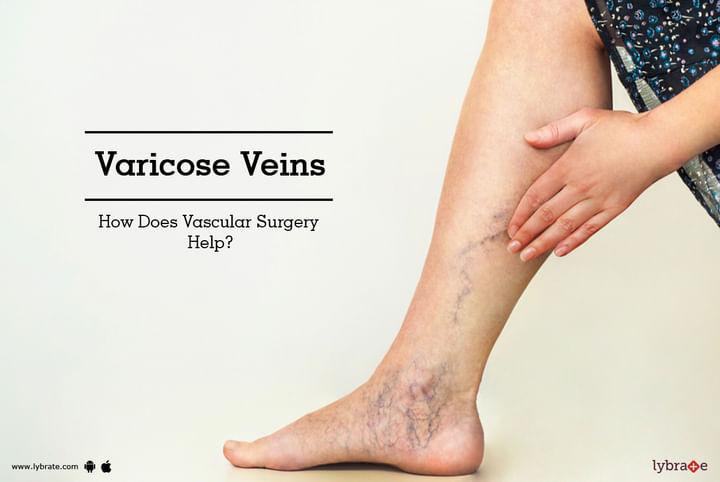Varicose Veins - How Does Vascular Surgery Help?
Varicose veins are a painful swelling of the veins of the legs. The raised veins just under the top layer of the skin appear to be purplish blue. It is a common affliction and affects nearly 25% of the adult population all across the world and 10 million people in India are diagnosed with it every year.
What are varicose veins?
Varicose veins are enlarged veins that typically develop in the legs and the feet. This condition is triggered when there is something wrong with the valves of the veins. When the valves do not function properly, blood flow to all parts of the body is disrupted. Since the legs are the farthest part of the body from the heart, gravity makes it difficult for blood to flow up to the heart.
Varicose veins are common in people who are:
• Above 50 years of age
• Lead a lifestyle that requires them to be on their feet for long stretches of time
• Pregnant
• Menopausal
• Obese
If someone in your family has a history of varicose veins, you are quite likely to get it too.
What are the symptoms of varicose veins?
Varicose veins are characterized by the following symptoms-
• The most obvious symptom is the large twisty veins
• Pain all down the length of your legs
• Discolouration of the skin of the legs and feet
Diagnosis of varicose veins:
The doctor usually diagnoses varicose veins by a physical examination. She/he may also suggest an ultrasound to determine if your flow of blood is affected. It is a non-invasive procedure and is done with the help of high-frequency sound waves.
You may even have to undergo a venogram. The doctor injects a coloured dye into your veins and X-rays them. The dye gives an indication of how well your blood is flowing through the veins.
Treatment of varicose veins:
There are several treatment options for varicose veins-
• Compression socks: these socks exert pressure on the swollen veins and make it easy for blood to flow upwards. They also bring down the swelling.
Vascular surgery:
When the other methods do not work, doctors prescribe vascular surgery.
• Ligation and stripping: Through this surgery, the surgeon ties up the vein to prevent pooling of blood in the veins and sometimes the vein itself is removed.
• Sclerotherapy: The doctor injects a chemical right into the varicose vein which closes it.
• Radiofrequency ablation: The doctor uses radiofrequency to heat the varicose vein up, which makes the walls collapse
Lifestyle changes:
A few changes to your lifestyle can help you avoid the menace of varicose veins-
• If your job requires you to stand for extended periods, squeeze out a few minutes so that you can sit down, that allows blood to flow normally up to your legs.
• If you are overweight, lose weight immediately.
• Exercise regularly because that keeps your heart healthy and improves blood circulation.
Varicose veins are a painful condition that can be avoided if you implemented a few changes to how you live your life and even if you do get them, there are ways to cure them.



+1.svg)
